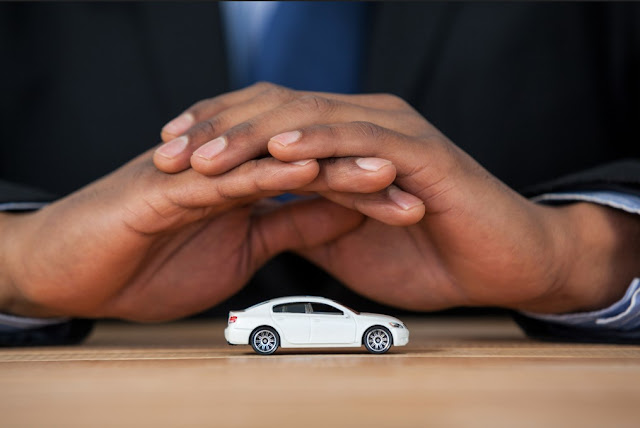For many people over 50, ensuring your vehicle is reliable is about more than convenience; it’s about maintaining independence, sticking to a retirement-friendly budget, and avoiding unnecessary expenses.
But how do you know when repairing or replacing your car will save you money?
For individuals nearing or in retirement, financial responsibility takes center stage. Nobody wants to spend their nest egg on avoidable car expenses or an unnecessary replacement.
Sometimes, holding onto your existing car makes the most sense. Repairs can be cheaper than buying a new car, but it’s essential to understand when repairs are more cost-effective than replacements.
Repairs costing less than 50 percent of your car’s current resale value may be worth it. If you’re unsure of the value of your car, some websites can help you calculate its value and even showcase your offer locally.
If your current vehicle meets your lifestyle requirements (for example, ample trunk space, fuel efficiency, or ease of use), a repair may be the best option. After all, a new car might not be as practical or could cost even more in the long run.
Have you been diligent with routine maintenance? Vehicles with regular oil changes, timely brake replacements, and a documented service history tend to last longer. Extending its lifespan with a few repairs may be worth it.
Sometimes, the costs and challenges of keeping your car on the road outweigh the benefits. This is especially true if you were involved in an accident, regardless of its severity.
Many accidents may seem minor, but they can have significant consequences. If your car has sustained severe damage, it may not be worth the cost of repairing it.
Certain accidents, such as hitting a deer, may seem simple but can cause underlying damage. Know the steps to follow after hitting a deer to make sure your car doesn’t have hidden damage.
No amount of repairs can make an unsafe car worth driving. If there are significant safety concerns, such as rusted frames, failing brakes, or outdated safety features, then replacement should be your priority.
If your car is spending more time at the mechanic’s than in your driveway, the disruptions may not be worth the savings. Frequent breakdowns and repairs are sure signs that your vehicle has reached the end of its reliable lifespan.
Knowing when to replace or repair your vehicle is crucial for saving money after any unexpected car issues. If you’re unsure which route to take, discuss your situation with a financial advisor, or use online tools to calculate the total cost of ownership for new and used vehicles.
Why the Right Decision Matters
For individuals nearing or in retirement, financial responsibility takes center stage. Nobody wants to spend their nest egg on avoidable car expenses or an unnecessary replacement.
Your budget and goals are at stake if you don’t prioritize your car, so you must ensure the decision aligns with your everyday needs.
Signs You Should Repair Your Car
Sometimes, holding onto your existing car makes the most sense. Repairs can be cheaper than buying a new car, but it’s essential to understand when repairs are more cost-effective than replacements.
Repair Costs Are Manageable
Repairs costing less than 50 percent of your car’s current resale value may be worth it. If you’re unsure of the value of your car, some websites can help you calculate its value and even showcase your offer locally.
If your vehicle is worth 10,000 dollars and the repair is 1,500 dollars, fixing it could save you more in the long term than replacing it.
Your Car Still Fits Your Needs
If your current vehicle meets your lifestyle requirements (for example, ample trunk space, fuel efficiency, or ease of use), a repair may be the best option. After all, a new car might not be as practical or could cost even more in the long run.
The Maintenance History Is Solid
Have you been diligent with routine maintenance? Vehicles with regular oil changes, timely brake replacements, and a documented service history tend to last longer. Extending its lifespan with a few repairs may be worth it.
When It’s Better To Replace Your Car
Sometimes, the costs and challenges of keeping your car on the road outweigh the benefits. This is especially true if you were involved in an accident, regardless of its severity.
After a Major Accident
Many accidents may seem minor, but they can have significant consequences. If your car has sustained severe damage, it may not be worth the cost of repairing it.
Certain accidents, such as hitting a deer, may seem simple but can cause underlying damage. Know the steps to follow after hitting a deer to make sure your car doesn’t have hidden damage.
Your Car Is Unsafe
No amount of repairs can make an unsafe car worth driving. If there are significant safety concerns, such as rusted frames, failing brakes, or outdated safety features, then replacement should be your priority.
Increasing Repairs and Downtime
If your car is spending more time at the mechanic’s than in your driveway, the disruptions may not be worth the savings. Frequent breakdowns and repairs are sure signs that your vehicle has reached the end of its reliable lifespan.
Knowing when to replace or repair your vehicle is crucial for saving money after any unexpected car issues. If you’re unsure which route to take, discuss your situation with a financial advisor, or use online tools to calculate the total cost of ownership for new and used vehicles.





